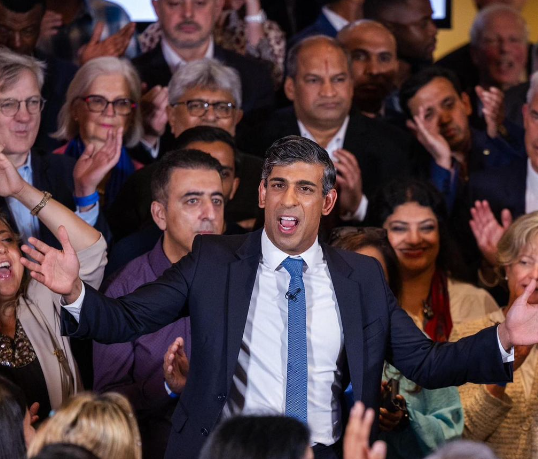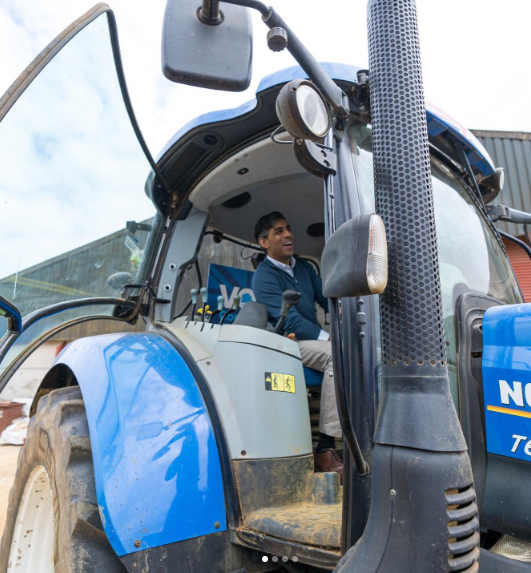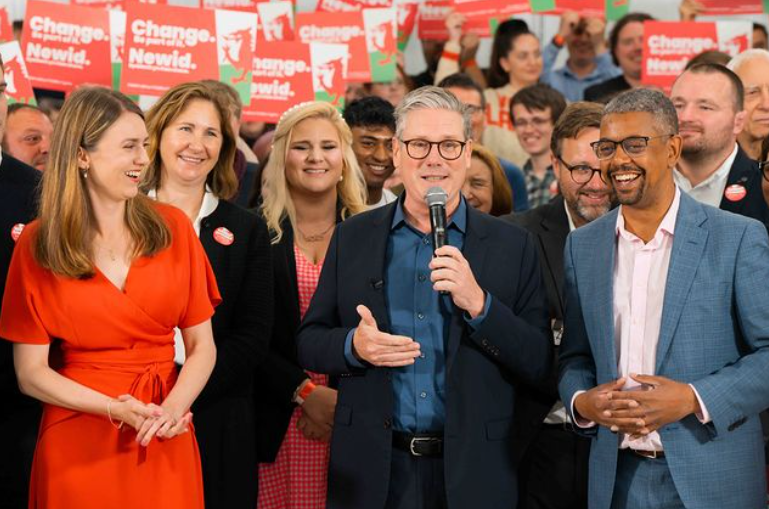
Prime Minister of the United Kingdom and Conservative Party leader Rishi Sunak has wrapped up his poll campaign with this message to voters: “We need to stop the Labour supermajority that will put up your taxes.”
Today is the last day of campaigning; the UK election will be held tomorrow. The reference to a “Labour supermajority” indicates that the Conservatives have all but conceded defeat in the general election.
“This is what unites us. We need to stop the Labour supermajority that will put up your taxes. The only way to do that is to vote Conservative tomorrow,” said Sunak, 44, on social media, as he focused on drumming up support in the last few hours of the campaign trail.
With his party trailing far behind the Keir Starmer-led Labour Party, as per predictions, the British Indian prime minister’s — and his team’s — strategy seems to be to canvas the traditional Tory voter base. This is meant to ensure a strong enough turnout in the polls tomorrow, and thus narrow the gap of their widely expected defeat after Tory victories in the last three elections.
“I totally accept where the polls are at the moment means that tomorrow is likely to see the largest Labour landslide majority — the largest majority that this country has ever seen; much bigger than 1997,” said Sunak’s Work and Pensions Secretary Mel Stride to the BBC.
“I have accepted… that we are, therefore, tomorrow highly likely to be in a situation where [Labour has] the largest majority that any party has ever achieved,” he said, effectively conceding his party’s defeat.
This is being seen as a fear tactic to jolt Tory voters into action, with the hope of keeping the Labour majority under the 1997 level, under the leadership of former prime minister Tony Blair.
An Associated Press report said: “Under Blair, Labour won a majority of 179 seats, even bigger than the party’s victory over Winston Churchill’s Conservatives soon after the defeat of Nazi Germany in 1945. The Conservatives ended up with just 165 of the 650 seats in the House of Commons, their worst result since 1906.”

Suella Braverman, sacked as home secretary by Rishi Sunak, told The Telegraph, “Thursday’s vote is now all about forming a strong enough Opposition. One needs to read the writing on the wall: it’s over, and we need to prepare for the reality and frustration of the Opposition.”
Meanwhile, former prime minister Boris Johnson — not exactly a close ally of Sunak — was also rolled out by the Conservatives at a campaign event in London to warn against a “sledgehammer majority” being handed to Labour.
“When Rishi asked me to come and help, of course I couldn’t say no. We’re all here because we love our country,” Johnson told a cheering Tory crowd.
“They can achieve nothing in this election except to usher in the most left-wing Labour government since the war with a huge majority, and we must not let it happen,” he warned.
The Labour Party, meanwhile, is keen to override this message of victory as a foregone conclusion a day before the polls to fight against any complacency within the ranks and among its own voter base.
“People are saying the polls predict the future — they don’t predict the future, every single vote counts, every single vote has to be earned… It isn’t ‘job done,’” said Starmer.

Polling experts have forecast a low turnout, which stood at 67 per cent in the last general election in December 2019, when Johnson won a solid majority on his “get Brexit done” message.
On Thursday, polling booths will open across the country at 7am local time and close at 10pm local time as voters elect their MPs for the UK Parliament’s 650 constituencies — with 326 required for a majority and to avert a hung Parliament.
All eyes will then be on the election night exit poll at 10pm, which gives a fair snapshot of what can be expected nationally as the counting commences and centres up and down the UK.
If opinion polls are to be believed, the incumbent Tories are in line to win anywhere between 53 and 150 seats, with Labour projected to win a landslide.


